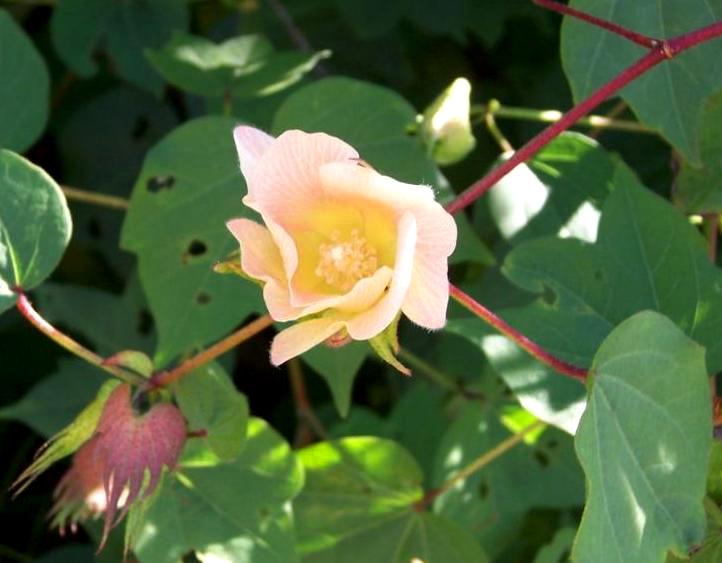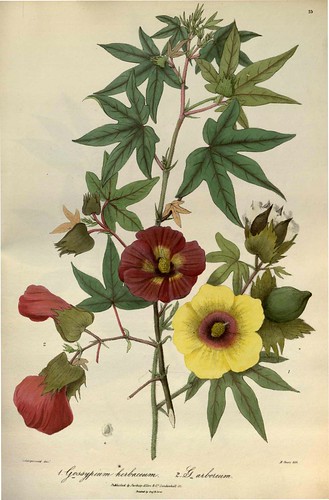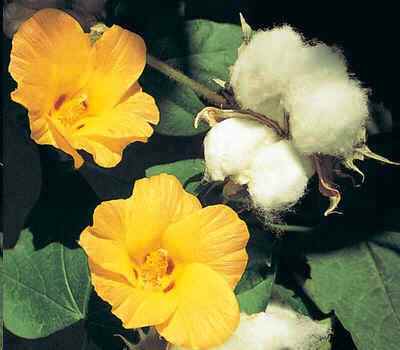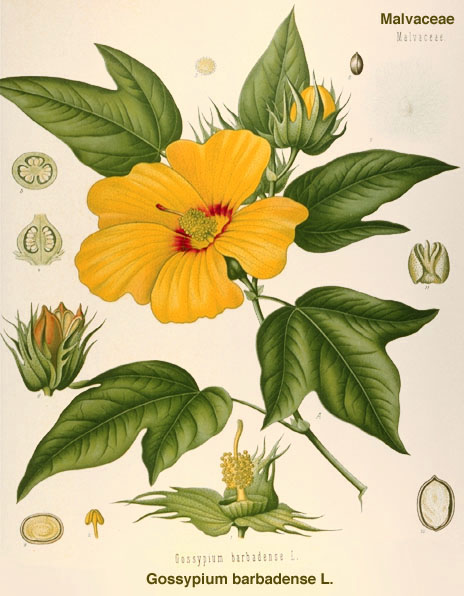 Gossypium herbaceum, also called Levant cotton, is a species of cotton native to the semi-arid regions of sub-Saharan Africa and Arabia where it still grows in the wild as a perennial shrub. It was probably first cultivated in Ethiopia or southern Arabia and from there, cultivation spread to Persia, Afghanistan, Turkey, North Africa, Spain, Ukraine, Turkestan and finally, to China. It was first cultivated in China by about 600 AD.
Gossypium herbaceum, also called Levant cotton, is a species of cotton native to the semi-arid regions of sub-Saharan Africa and Arabia where it still grows in the wild as a perennial shrub. It was probably first cultivated in Ethiopia or southern Arabia and from there, cultivation spread to Persia, Afghanistan, Turkey, North Africa, Spain, Ukraine, Turkestan and finally, to China. It was first cultivated in China by about 600 AD.A legend was perpetuated from a factual description of this plant by Greek historian Herodotus in the 5th century BC. Although his book, simply titled Histories, was an account of a war between the Persian Empire and the Greek city-states; it also contained vast descriptions of lands beyond the boundaries of the world known by the Greeks at that time.
He wrote: "certain trees...bear forth their fruit fleeces surpassing those of sheep in beauty and excellence, and the natives clothe themselves in cloths made therefrom."
From this description came the legend of the "vegetable lamb plant" which was said to be a real sheep. The tree would grow from a melon like seed and grow into a lamb rooted to the earth by a stem from its navel. It was said to graze on the surrounding vegetation until the all greenery around it was devoured at which point it would wither and die. A 14th century traveler by the name of Sir John Mandeville, professed to eating the flesh of this herbal beast. Although scientist tried to debunk this tale it was not officially labeled as a fable until 1887.









No comments:
Post a Comment